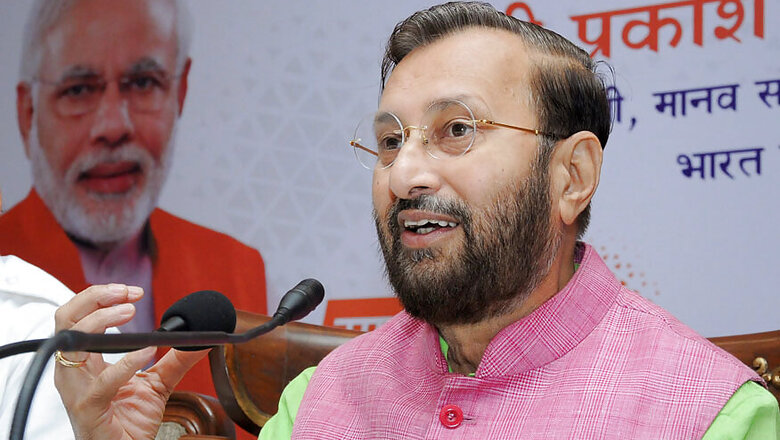
views
New Delhi: The government’s proposal to restructure the University Grants Commission (UGC) and replace it with a new Higher Education Commission of India would also downsize the scope of the higher education regulator.
The biggest example of this reduced scope would be that in the new avatar, it will no longer have the role of funding universities. The draft act proposes that the regulator only focus on setting, maintaining and improving academic standards in universities.
Under the new regime, the grant functions would either be conducted by the Ministry of Human Resource Development or another alternative to allow the HECI to focus only on academic matters.
This, it says, would also result in a push to digital fund transfer systems with every transfer of grants being done on the Public Financial Management System (PFMS) module.
Officials said that it was observed that the roles of “regulation and grant” were conflicting. One cannot be involved in regulation while being a part of the system. Regulation and grant of funds will, therefore, be handled by two different arrangements.
“We will notify about the alternative. It could be the ministry or we could go by the IMPRINT research scheme model funded by the ministry and implemented by IIT Kanpur. There will be a domain expert evaluating the process based on the e-governance module,” said secretary of higher education, R Subrahmanyam.
New Model for Grants Soon
Earlier, money was transferred through various modes, but now every fund will go through the ministry on the PFMS Module directly to the universities. The PFMS module was already in practice, wherein the HRD ministry would transfer funds to the UGC. From there, the regulatory body would send it to universities.
Now, every transaction will be tracked as the information would be available on the dashboard of the officials – reflecting how much is spent and how much remains in the account. This will aide in checking misuse of grants.
“This intends to bring effectiveness through better cash management for government transparency in public expenditure. It will provide real-time information on resource availability, utilisation and enable direct payment to the universities and from them to the agencies,” he added.
The proposed system will be an important tool in pursuing e-governance. Under UGC, the procedure for release of funds required various documents like the Utilization Certificate for the total cost. “The UCs will be done away with,” he said.
Inspection Raj Ends, Public Monitoring Gets a Push
The system of setting up an inspection team and letting them loose on institutions will completely change. The system will go digital. The government is going to push for more prior disclosures on parameters like infrastructure, teacher’s strength, academic achievement, placement data or research publications.
The defined parameters would be put on the website and has to be proactively disclosed to the public. “The Commission reserves the right to check the universities at random. If false data is found, the Higher Education Commission will debar the institution from granting degrees,” said Subrahmanyam, adding that it is going to encourage public monitoring of the institution.
Set Academic Standards
The new system can look into training of teachers, and if required mentor them. It will also encourage accreditation for institutes and if they are found to be poor, work will be done towards their exclusion. The new policy works on protecting students.
The HECI is tasked with the mandate of improving academic standards with a specific focus on learning outcomes, evaluating academic performance by institutions, mentoring institutions, training of teachers and promotion use of educational technology, among other things.
This will develop a norm for setting standards for opening and closure of institutions, provide greater flexibility and will bring autonomy to institutions. It will also lay standards for appointments to critical leadership positions at the institutional level irrespective of University.
The regulator will have powers to enforce compliance with the academic quality standards and will have the power to order closure of sub-standard, bogus institutions.
Reform for Others
Earlier, the plan was to have a Higher Education Empowerment Regulation Agency, to replace AICTE, NCTE and UGC. But the government chose to have a comprehensive approach towards reforms and start with the reform of the main regulator.
"The government will have a similar run through for All India Council for Technical Education (AICTE) and National Council for Teacher Education (NCTE) as well. The reforms process might be similar as this to ensure academic excellence," said Subrahmanyam.




















Comments
0 comment